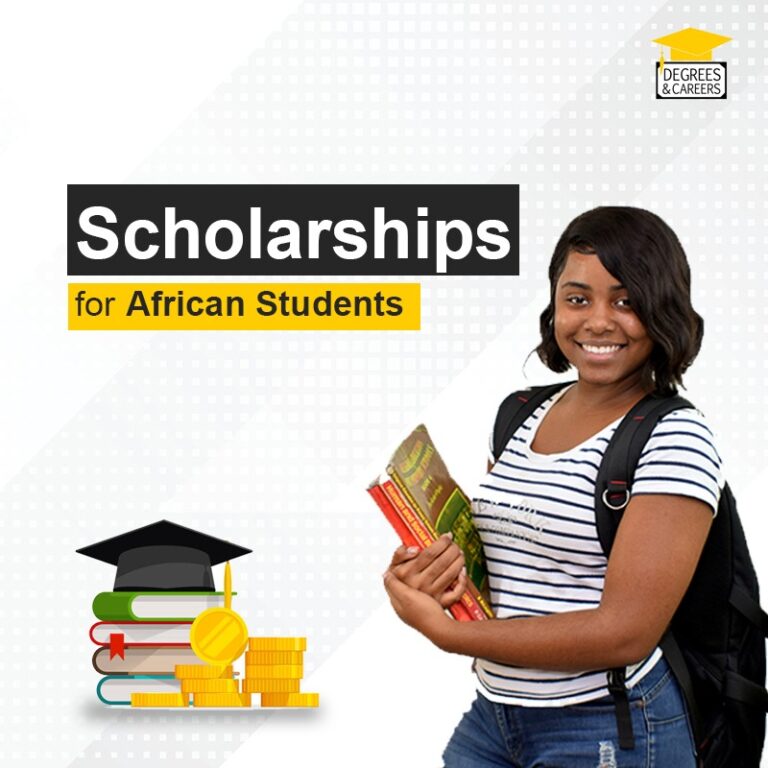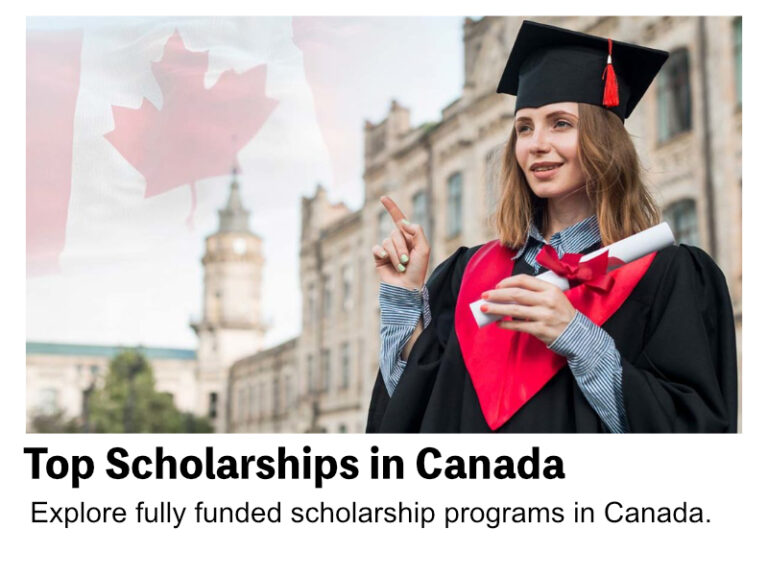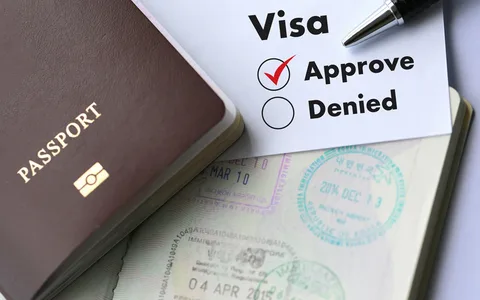Moving to Canada as an African scholarship student opens doors to world-class education, but did you know it can also provide incredible work-study opportunities? Whether you’re from Nigeria, Kenya, Ghana, South Africa, or any other African nation, understanding how to balance work and studies can transform your Canadian experience.
Let’s dive into everything you need to know about maximizing your time in Canada through smart work-study choices.
Understanding Work-Study Programs in Canada
Work-study opportunities in Canada aren’t just about earning extra money – they’re about building your future. These programs allow international students to gain valuable work experience while pursuing their education, creating a perfect bridge between academic learning and professional development.
For African students, these opportunities become even more significant. They help offset living costs, provide networking opportunities, and offer practical skills that enhance your resume for the global job market.
The Canadian government recognizes the value international students bring to the economy. That’s why they’ve created various pathways for students to work legally while studying, making it easier for African scholarship recipients to thrive.
Types of Work-Study Opportunities Available
On-Campus Employment
On-campus jobs represent the most accessible work-study opportunities for African scholarship students. These positions don’t require additional work permits beyond your study permit, making them ideal for newcomers.
Popular on-campus roles include research assistantships, teaching assistant positions, library support, campus tour guides, and administrative support roles. Universities like the University of Toronto, McGill University, and the University of British Columbia actively hire international students for these positions.
Research assistantships deserve special mention. Many African students excel in these roles, bringing unique perspectives to Canadian research projects. These positions often pay well and provide excellent networking opportunities with professors and graduate students.
Campus dining services, bookstores, and student centers also offer flexible work-study opportunities. These jobs help you integrate into campus life while earning money and developing customer service skills.
Off-Campus Work Permits
Once you’ve been studying full-time for at least six months, you become eligible for off-campus work. This opens up significantly more work-study opportunities beyond the university campus.
The 20-hour weekly limit during studies might seem restrictive, but it’s designed to ensure your academic success remains the priority. During scheduled breaks, you can work full-time, which many African students use to boost their savings.
Popular off-campus opportunities include retail positions, food service, tutoring, freelance work in your area of expertise, and internships related to your field of study. Cities like Toronto, Vancouver, and Montreal offer diverse job markets that welcome international talent.
See also: 14 Graduate Scholarships Providing Full Tuition coverage in 2025
Scholarship Programs That Support Work-Study
Government-Sponsored Scholarships
The Canadian government offers several scholarship programs specifically designed for African students, many of which encourage work-study participation.
The Canada-Africa Partnership Program provides funding while allowing recipients to engage in work-study opportunities that complement their academic goals. These scholarships often come with mentorship components that help students navigate the Canadian job market.
Provincial scholarship programs in Ontario, British Columbia, and Alberta also support African students. These programs recognize that work-study opportunities enhance the overall educational experience and prepare students for post-graduation success.
The Trudeau Foundation Scholarships, while competitive, offer comprehensive support that includes career development opportunities alongside academic funding.
University-Specific Programs
Canadian universities have developed targeted scholarship programs for African students that integrate work-study components.
The University of Toronto’s Lester B. Pearson International Scholarship Program encourages recipients to engage in campus work opportunities. Similarly, the University of British Columbia’s International Leader of Tomorrow Award supports work-study participation.
These university programs understand that work-study opportunities provide cultural integration benefits that pure academic scholarships might miss. They actively connect African students with relevant work opportunities that align with their career goals.
McGill University’s entrance scholarships for international students often include work-study components, recognizing that practical experience enhances academic learning.
Maximizing Your Work-Study Experience
Choosing the Right Opportunities
Not all work-study opportunities are created equal. African students should prioritize positions that align with their career goals while providing practical skills and networking opportunities.
If you’re studying engineering, seek research assistant positions in engineering departments. Business students should look for opportunities in campus business operations or local companies offering internships.
Consider the learning potential of each opportunity. A lower-paying position that teaches valuable skills might be more beneficial long-term than a higher-paying job that doesn’t contribute to your professional development.
Location matters too. On-campus opportunities save commute time, allowing more time for studies. However, off-campus positions might offer higher pay and exposure to the broader Canadian job market.
Time Management Strategies
Balancing work and studies requires excellent time management skills. Many successful African students in Canada develop systems that maximize both academic and work performance.
Create a weekly schedule that prioritizes your studies while incorporating work hours that don’t conflict with classes or major assignments. Use tools like Google Calendar or specialized student planning apps to track commitments.
Communicate with your employers about your academic schedule. Most Canadian employers understand that students need flexibility during exam periods and for major project deadlines.
Build buffer time into your schedule for unexpected academic demands. The Canadian education system can be intense, and having flexibility in your work schedule prevents academic stress.
Read also: 25 Easiest Scholarships to Win in 2025 (Ranked by Success Rate
Financial Benefits and Budgeting
Earning Potential
Work-study opportunities in Canada can significantly impact your financial situation. On-campus positions typically pay between CAD $15-25 per hour, while specialized roles like research assistantships may pay more.
Off-campus opportunities often offer higher hourly rates, especially in major cities. However, factor in commute costs and time when calculating real earnings.
During full-time work periods (summer breaks, winter breaks), African students can earn substantial amounts. Many use these intensive work periods to cover upcoming semester expenses or build emergency funds.
The key is viewing work-study opportunities as part of your overall financial strategy, not just immediate income generation.
Smart Budgeting Tips
Create a budget that accounts for both your scholarship funds and work-study earnings. Many African students find that work income covers day-to-day expenses while scholarship money handles tuition and major costs.
Track your spending using apps like Mint or YNAB. Understanding where your money goes helps optimize your work-study schedule and identifies areas where you might work more or less.
Build an emergency fund from your work earnings. Having financial cushion reduces stress and allows you to focus on academics during challenging periods.
Consider setting aside money for professional development opportunities, networking events, and career-building activities that your scholarship might not cover.
Building Professional Networks
Connecting with Canadian Professionals
Work-study opportunities provide natural networking opportunities that pure academic programs might miss. Every workplace interaction is a chance to build professional relationships in Canada.
Take initiative in introducing yourself to colleagues and supervisors. Many African students find that Canadian professionals are genuinely interested in their backgrounds and career goals.
Attend workplace social events and professional development sessions. These informal settings often lead to valuable connections and mentorship opportunities.
LinkedIn becomes crucial for maintaining professional relationships built through work-study experiences. Connect with supervisors, colleagues, and clients you meet through your work opportunities.
Leveraging African Professional Networks
Canada has vibrant African professional communities that can enhance your work-study experience. Organizations like the Africa Centre in Toronto or African Canadian Professional Networks provide valuable connections.
Many successful African professionals in Canada started as students and understand the challenges you face. They often provide mentorship and job referrals that can transform your work-study opportunities into career launches.
Attend African professional events and cultural celebrations. These gatherings combine cultural connection with professional networking, helping you build a support system that understands your unique perspective.
Navigating Work Permits and Legal Requirements
Understanding Your Rights
As an African student in Canada, understanding your work rights prevents exploitation and ensures you maximize legitimate opportunities. Your study permit automatically includes work authorization with specific conditions.
You can work up to 20 hours per week during studies and full-time during scheduled breaks. Violating these limits can jeopardize your immigration status, so tracking hours carefully is crucial.
On-campus work doesn’t count toward the 20-hour limit, making it an attractive option for students who want to maximize their working time legally.
Keep detailed records of your work hours and employers. Immigration authorities may request this information during permit renewals or future applications.
Documentation and Compliance
Maintain proper documentation for all work-study opportunities. This includes employment contracts, pay stubs, tax documents, and hour tracking records.
Understand your tax obligations as an international student worker. You’ll need a Social Insurance Number (SIN) and should file annual tax returns, even if your income is below taxable thresholds.
Some provinces offer tax credits specifically for students, and proper documentation ensures you don’t miss these benefits.
Work only for legitimate employers who understand international student work regulations. Avoid under-the-table arrangements that could complicate your immigration status.
Academic Integration and Support
Balancing Work and Studies
Successful African students develop strategies that make work-study opportunities enhance rather than hinder their academic performance. This requires intentional planning and regular assessment.
Communicate with your professors about your work commitments. Many are supportive and may offer flexibility with assignment deadlines or class participation requirements.
Use your work experience to enhance academic projects. Real-world experience from work-study opportunities often provides excellent case studies and research topics.
Consider reducing work hours during particularly challenging academic periods. Your education is the primary investment, and protecting your grades ensures long-term success.
Academic Support Resources
Canadian universities offer extensive support services for international students balancing work and studies. Academic advisors can help you navigate course loads that accommodate work schedules.
Writing centers, tutoring services, and study groups become more important when you’re working while studying. Take advantage of these resources to maintain academic excellence.
Many universities offer time management workshops specifically designed for working students. These sessions provide practical strategies from students who have successfully balanced both commitments.
Financial aid offices can also provide advice on optimizing the combination of scholarships and work-study earnings.
Career Development Through Work-Study
Skill Development
Work-study opportunities provide skill development that traditional classroom learning cannot match. African students often find that practical work experience gives them advantages in the competitive Canadian job market.
Focus on developing both technical skills related to your field and soft skills like communication, teamwork, and cultural adaptation. Canadian employers highly value these competencies.
Seek feedback from supervisors and colleagues about your performance. This input helps you understand Canadian workplace expectations and improve your professional skills.
Document your achievements and learning outcomes from each work opportunity. This information becomes valuable for future job applications and graduate school admissions.
Post-Graduation Pathways
Many work-study opportunities serve as stepping stones to post-graduation employment in Canada. Employers often prefer hiring candidates they know and trust from previous work relationships.
The Post-Graduation Work Permit (PGWP) allows you to work full-time in Canada after completing your studies. Having established work relationships through work-study programs provides significant advantages in securing employment.
Some work-study positions lead directly to full-time job offers upon graduation. Employers appreciate the investment they’ve made in training student workers and often want to retain good performers.
Professional references from work-study supervisors carry significant weight in the Canadian job market. These relationships become valuable assets in your career development.
Technology and Remote Work-Study Opportunities
Digital Opportunities
The rise of remote work has created new work-study opportunities that are particularly accessible to international students. These positions often offer greater flexibility than traditional on-campus or local jobs.
Freelance work in areas like writing, graphic design, web development, and digital marketing allows you to leverage your skills while maintaining study schedule flexibility.
Online tutoring has become increasingly popular, with African students often finding success teaching languages, mathematics, or subjects related to their academic specialization.
Virtual assistant roles, content creation, and social media management offer opportunities to work with clients globally while studying in Canada.
Leveraging African Expertise
Your African background and language skills can become significant advantages in certain work-study opportunities. Companies seeking to expand into African markets often value students who understand these contexts.
Translation services, cultural consulting, and international business support represent growing opportunities for African students with relevant expertise.
Research positions focusing on African topics or international development often specifically seek students with firsthand knowledge of African contexts.
Overcoming Common Challenges
Cultural Adaptation
Adapting to Canadian workplace culture while maintaining your cultural identity can be challenging but rewarding. Work-study opportunities provide safe environments to practice professional cultural navigation.
Canadian workplace communication tends to be direct but polite. Understanding these nuances helps you succeed in work-study positions and prepares you for post-graduation employment.
Punctuality, email etiquette, and meeting participation styles may differ from what you’re accustomed to. Observing and adapting to these norms demonstrates professionalism and cultural competence.
Don’t be afraid to ask questions about workplace expectations. Canadian supervisors generally appreciate proactive communication and cultural curiosity.
Managing Homesickness and Isolation
Work-study opportunities provide social connections that can help combat homesickness and isolation common among international students. Workplace relationships often extend beyond professional interactions.
Seek positions that allow interaction with diverse groups of people. Customer service roles, campus tour guide positions, and team-based projects provide social engagement opportunities.
Consider work opportunities that connect you with other international students or African communities in Canada. These connections provide cultural comfort while building professional networks.
Success Stories and Role Models
Inspiring Examples
Many successful African professionals in Canada credit work-study opportunities with launching their careers. These success stories provide inspiration and practical guidance for current students.
Dr. Amina Hassan from Somalia worked as a research assistant while completing her PhD at the University of Toronto. This experience led to post-doctoral opportunities and eventually a faculty position at a Canadian university.
Joseph Kwame from Ghana combined his business studies with work at a campus entrepreneurship center. This experience helped him launch a successful consulting firm that now serves clients across North America.
These stories demonstrate that strategic use of work-study opportunities can transform educational experiences into launching pads for successful Canadian careers.
Learning from Setbacks
Not every work-study experience leads to immediate success, and learning from challenges is part of the growth process. Many successful African professionals faced initial difficulties that became learning opportunities.
Some students initially chose work opportunities purely for financial reasons, later realizing that career-aligned positions provided better long-term benefits despite potentially lower immediate pay.
Others learned to balance work commitments with academic demands through trial and error, developing time management skills that served them throughout their careers.
Future Trends and Opportunities
Evolving Job Markets
The Canadian job market continues evolving, creating new work-study opportunities particularly suited to internationally diverse students. Technology, healthcare, and green energy sectors show particular promise.
Artificial intelligence, data analytics, and cybersecurity offer high-paying work-study opportunities for students with relevant skills or interests in developing them.
The aging Canadian population creates opportunities in healthcare support, elder care, and related services where African students’ cultural competencies and language skills provide advantages.
Policy Changes and Opportunities
Canadian immigration policies increasingly recognize the value of international students as future permanent residents and citizens. This recognition creates more supportive frameworks for work-study participation.
Recent policy changes have extended work permit eligibility and increased allowed working hours for international students in certain circumstances. Staying informed about these changes helps you maximize opportunities.
Provincial nominee programs often prioritize candidates with Canadian work experience, making work-study participation increasingly valuable for long-term immigration goals.
Conclusion
Work-study opportunities for African scholarship students in Canada represent far more than just financial assistance – they’re pathways to personal growth, professional development, and successful integration into Canadian society. Whether you choose on-campus research positions, off-campus retail work, or innovative remote opportunities, the key lies in strategic selection and dedicated commitment to both work and academic excellence.
The Canadian education system’s flexibility in accommodating work-study participation reflects the country’s recognition of international students’ valuable contributions. As an African student, you bring unique perspectives, diverse experiences, and fresh insights that Canadian employers and academic institutions actively seek.
Success in balancing work and studies requires careful planning, time management, and regular reassessment of your goals and priorities. Remember that your scholarship is an investment in your future, and work-study opportunities should complement, not compromise, your academic achievements.
The connections you build, skills you develop, and experiences you gain through work-study programs often prove as valuable as your formal education. Many African students find that their work-study experiences become the foundation for successful post-graduation careers in Canada.
As you embark on or continue your Canadian educational journey, view work-study opportunities as integral components of your overall development strategy. With careful planning, dedication, and strategic thinking, these opportunities can transform your scholarship experience into a comprehensive preparation for professional success in Canada’s diverse and dynamic economy.
Frequently Asked Questions
1. How many hours can I work as an African scholarship student in Canada?
As an international student in Canada, you can work up to 20 hours per week during your studies and full-time during scheduled breaks like summer and winter holidays. On-campus work doesn’t count toward this 20-hour limit, so you could potentially work on-campus while also working off-campus within the legal limits. Always track your hours carefully to ensure compliance with your study permit conditions.
2. Do I need a separate work permit for work-study opportunities?
No, your study permit automatically includes work authorization for both on-campus and off-campus employment, provided you’re a full-time student at a designated learning institution. However, you must wait six months after starting your studies before beginning off-campus work. You’ll need a Social Insurance Number (SIN) from Service Canada before starting any job in Canada.
3. Will working affect my scholarship eligibility or academic standing?
Most Canadian scholarships don’t prohibit work-study participation, but you should always check your specific scholarship terms and conditions. Work should complement, not compromise, your academic performance. If your grades suffer due to work commitments, consider reducing your work hours. Many scholarships actually encourage work-study participation as it provides practical experience and cultural integration opportunities.
4. What types of work-study opportunities pay the best for African students?
Research assistantships and teaching assistant positions typically offer the highest pay among on-campus opportunities, often ranging from CAD $18-30 per hour. Off-campus, tutoring in high-demand subjects, freelance work leveraging your skills, and positions requiring language abilities often pay well. However, prioritize opportunities that align with your career goals over those that simply pay the most, as relevant experience can be more valuable long-term.
5. How can work-study experience help with permanent residency applications in Canada?
Canadian work experience gained through work-study opportunities can significantly strengthen your permanent residency applications. The Canadian Experience Class and Provincial Nominee Programs often prioritize candidates with Canadian work experience. Additionally, Canadian employers who know your work quality may provide job offers that support your immigration applications. Keep detailed records of all your work experiences, as they demonstrate your successful integration into Canadian society and the job market.
For more information about studying in Canada as an international student, visit the Government of Canada’s official immigration website. To explore scholarship opportunities specifically for African students, check out EducationUSA Canada and Universities Canada resources.









